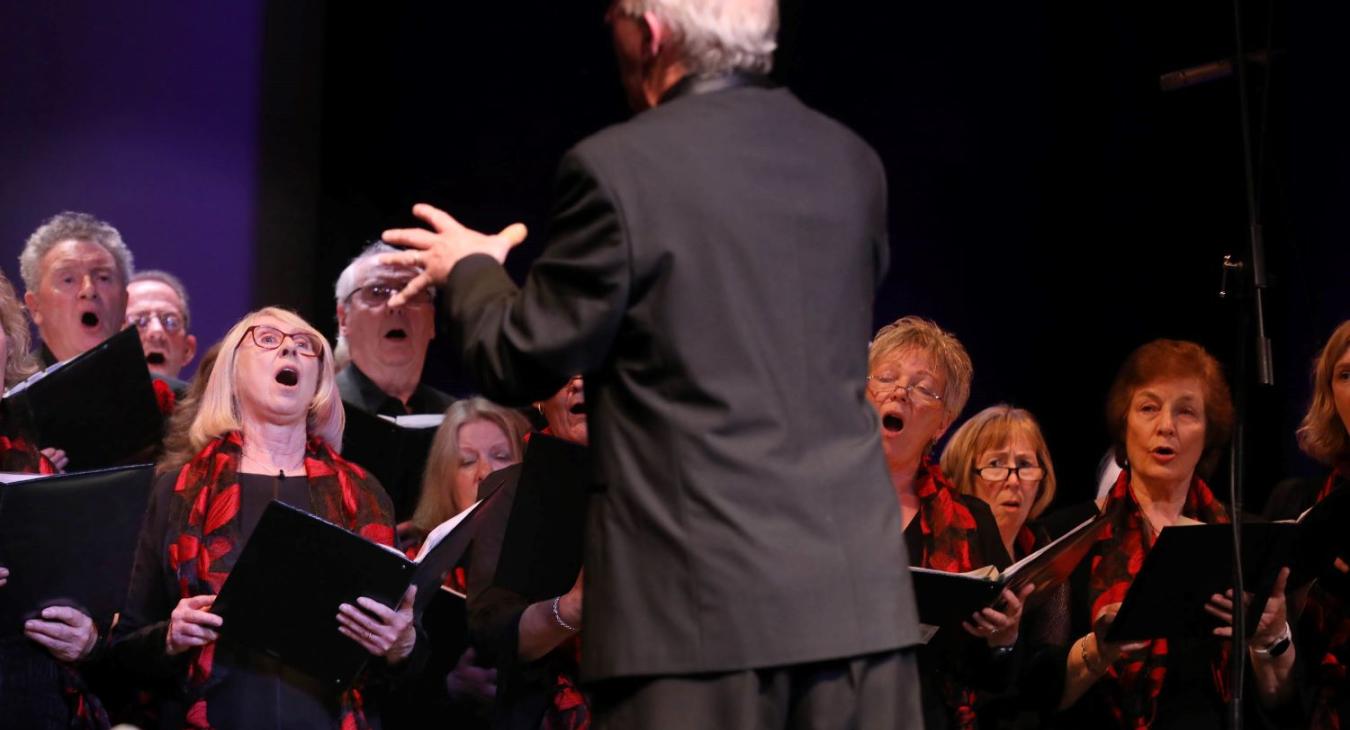
The People's College Choir founded in 1993 by Sheila Conroy led a night of song, music, memories, and tributes to the tireless campaigner for women's rights in the workplace and society. The guest artists were Mick O'Brien, Zoe Conway, and John McIntyre, who played traditional sets on the Uilleann pipes, fiddle, and guitar. SIPTU Deputy General Secretary Ethel Buckley and Fionnuala Richardson, President of the People's College Adult Education Association paid tribute to the trailblazer and union activist.
Sheila Conroy was born in 1917 in Bantry, Co. Cork, the only child of Harry and Jane Williams. Her mother died from TB soon after her birth and this led to Sheila being fostered with a local family until age 6. Having attended a local primary school she moved to Cork City for her secondary education. However, having endured throat infections and a bout of scarlet fever she left school after a year. In 1937 she was apprenticed to a small family confectionery firm in the city. Losing her job two years later she became a trainee waitress at the Victoria Hotel in Cork. Resenting the oppressive working conditions endured by the hotel staff, she spearheaded their successful clandestine affiliation to the Irish Transport and General Workers’ Union (ITGWU). 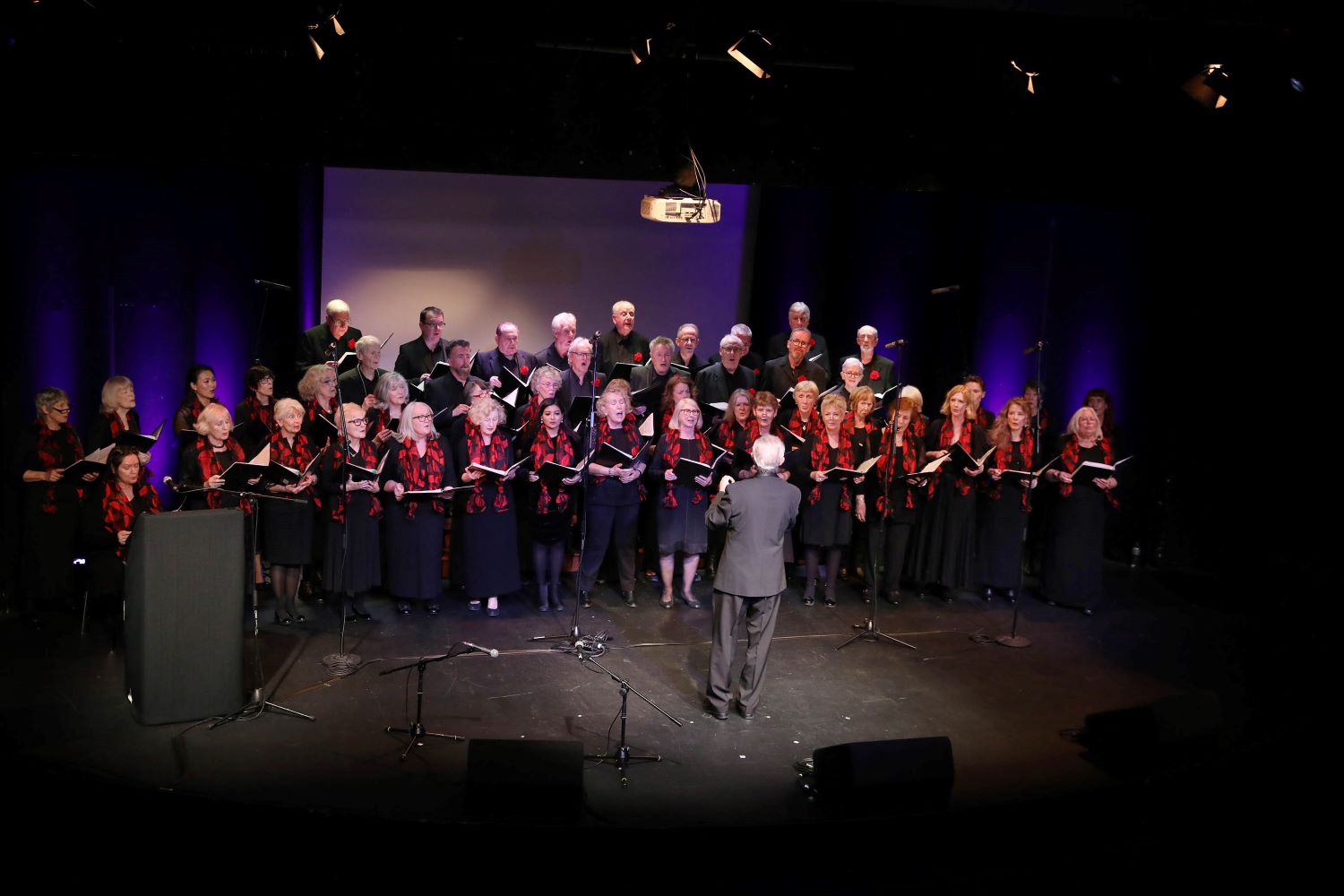
Sheila moved to Dublin in 1944, where she found work as a waitress at the Capitol Theatre, Princes Street North, and took courses at the College of Catering in Cathal Brugha Street. She continued her trade union activism, serving as shop steward for ITGWU members working at the Capitol, and becoming active in the union’s branch for hotel, restaurant, and catering staff in Dublin, most of whose 4,000 members were women. Elected at the 1952 AGM to the branch committee, she was a delegate to the ITGWU annual conference that summer, and highlighted the indifference of both male officials and many female members to the conditions endured by working women.
As the sole woman delegate at the Congress of Irish Unions in 1954 she wryly remarked how the marriage bar (requiring women’s resignation upon marriage) never applied in the catering industry, or other low-status, poorly paid jobs. In June 1955 she was the first woman elected to the ITGWU’s national executive committee (NEC), and negotiated on behalf of her branch at the Labour Court and in the establishment of regional, sectoral, joint industrial councils, which set wages and employment conditions. She also campaigned for the establishment of a national pension scheme to cover all workers.
In the 1958 NEC elections she topped the poll and at the June 1958 ITGWU congress, she and the union’s general president, John Conroy, introduced new rules concerning the payment of marriage gratuities to women members. Becoming personally close to John (who was widowed with grown up children) they married on 29 July 1959. In advance of her wedding she resigned from the union, but missed the stimulation of work, especially union activities and conferences. At this time she volunteered with Our Lady’s Hostel for Homeless Boys in Eccles Street, Dublin. The couple, who had no children, resided at Sandymount Ave., Ballsbridge. Her world fell apart when John died on 13 February 1969 after an illness. While she was working as a playgroup leader at Our Lady’s Hospital for Sick Children in Crumlin, the founder of the People’s College, Ruaidhrí Roberts recruited her as its part-time secretary-organiser in November 1969. Established in 1948 to promote adult education, the college was closely linked to the trade-union movement. Sheila brought her considerable administrative talents to bear on the college. She focused on organising evening classes and expanded both student numbers and the curriculum. On her appointment there were 200 students attending the college. Over the following two decades she expanded the number to 2,000.
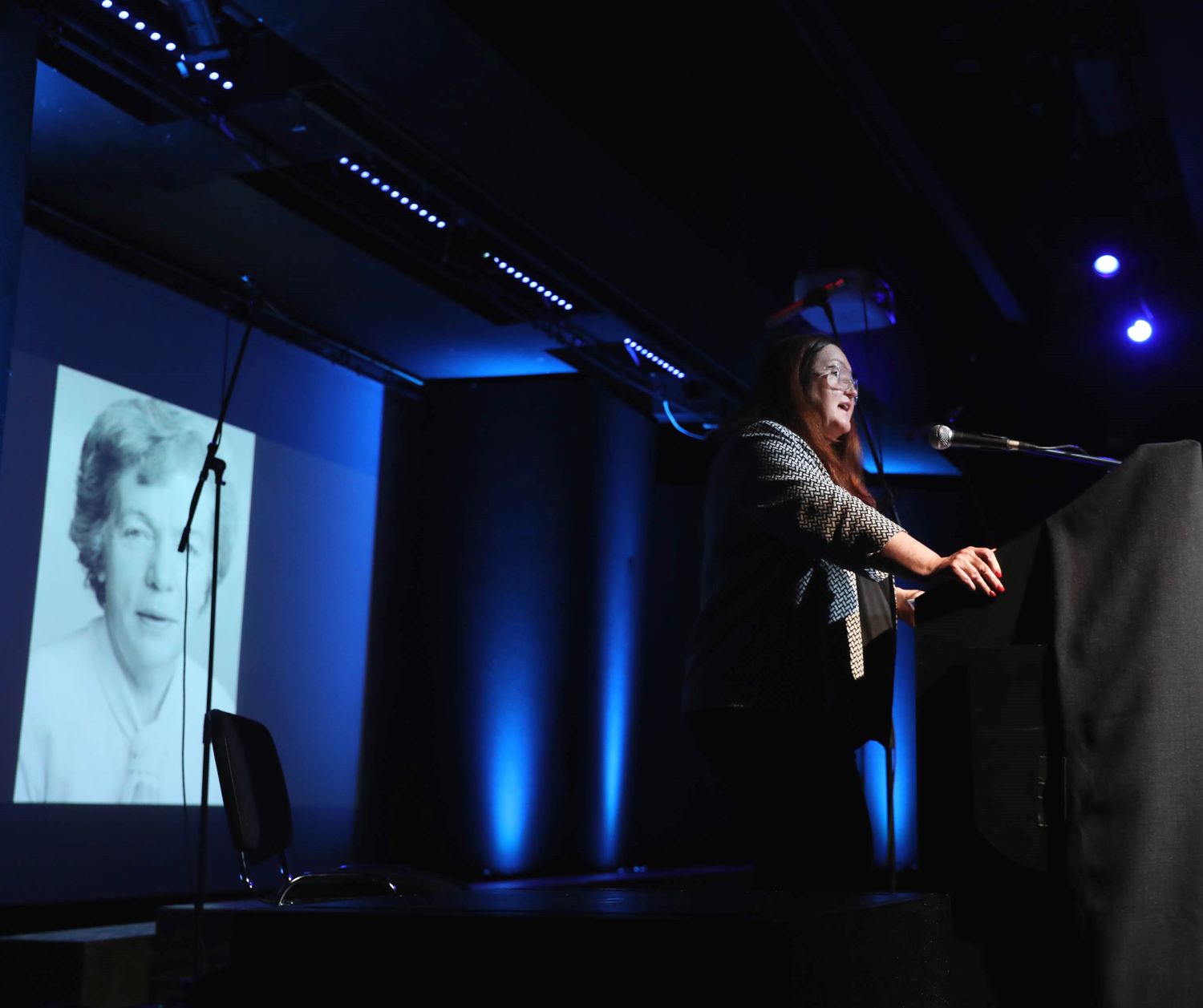
Sheila was adept at networking across union circles and lobbying government; from 1975, increased ad hoc funding allowed her to work with the college full time. In 1979 she helped secure a government grant, and through the 1980s garnered increased business sponsorship. Intensely committed to the college, she served as its president from 1984, and promoted student participation in classes, trips abroad, and social and cultural activities; she was especially proud of the college’s student choir, founded in early 1993.
She served on the executive and was vice-president of Aontas, the National Adult Learning Organisation, and established links and exchanges with various European and international adult education bodies. In 1970 her profile as one of Ireland’s leading female trade unionists led to her appointment to the Commission on the Status of Women, to assess the employment conditions and pay of women. The commission made forty-nine recommendations to the Minister for Finance in its final report in 1972, seventeen of which concerned equal pay and equality of employment. The government subsequently removed gender and marriage differentiated pay scales (1973–4), implemented equal pay (1974), and abolished the marriage bar in all forms of public employment (1977). Later legislation introduced maternity leave and equalised unemployment assistance. Sheila never lost sight of domestic issues: as chair of Irish Women Against the Common Market, she opposed Ireland’s accession to the EEC, fearing that increased food prices would fuel poverty. 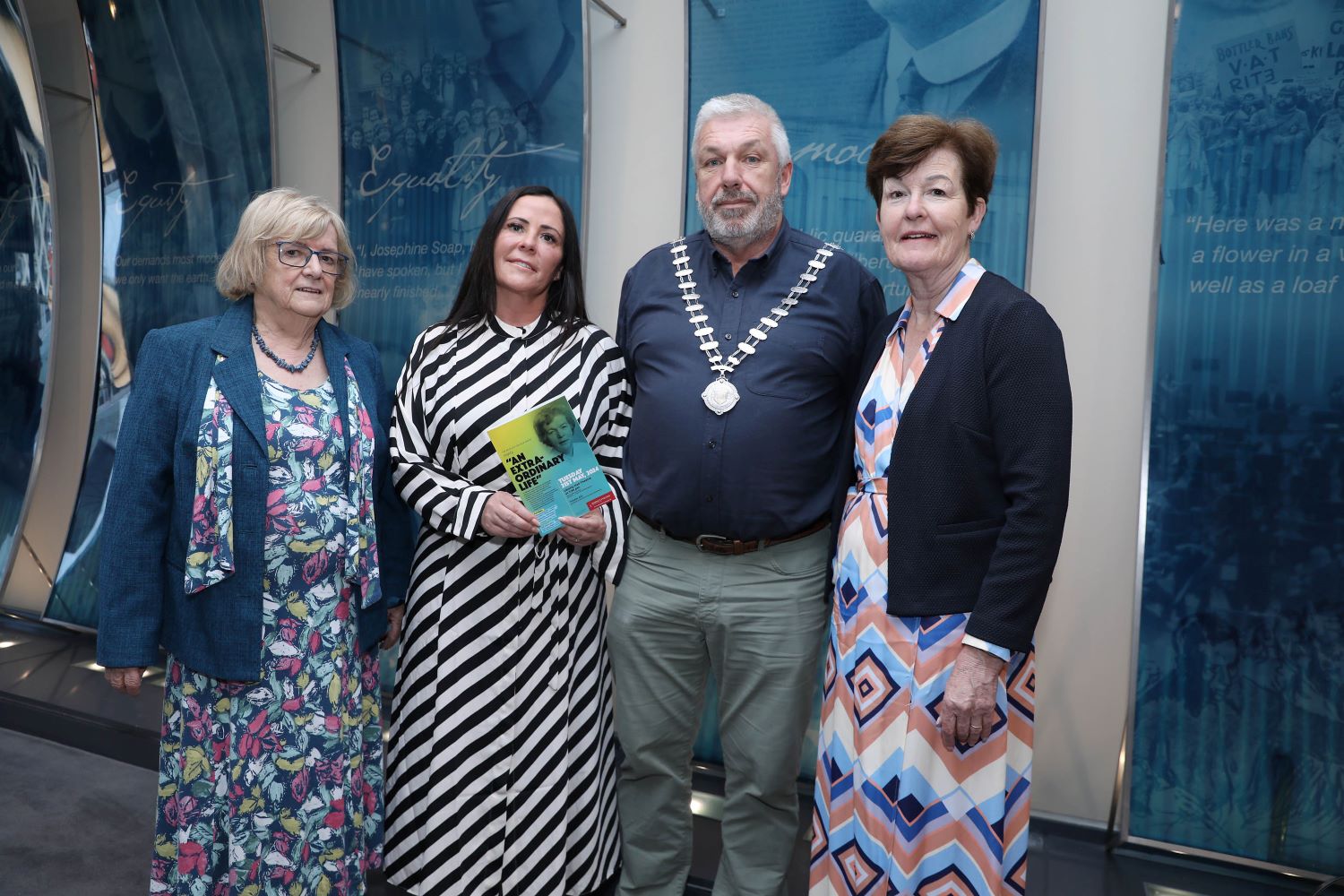
The plight of widows was one of her particular concerns, and she was variously chair (1973) and public relations officer of the National Association of Widows in Ireland, lobbying governments through the 1970s to ameliorate the difficulties facing widows; especially diminished property rights and inequitable treatment under law compared to men, who were widowers.
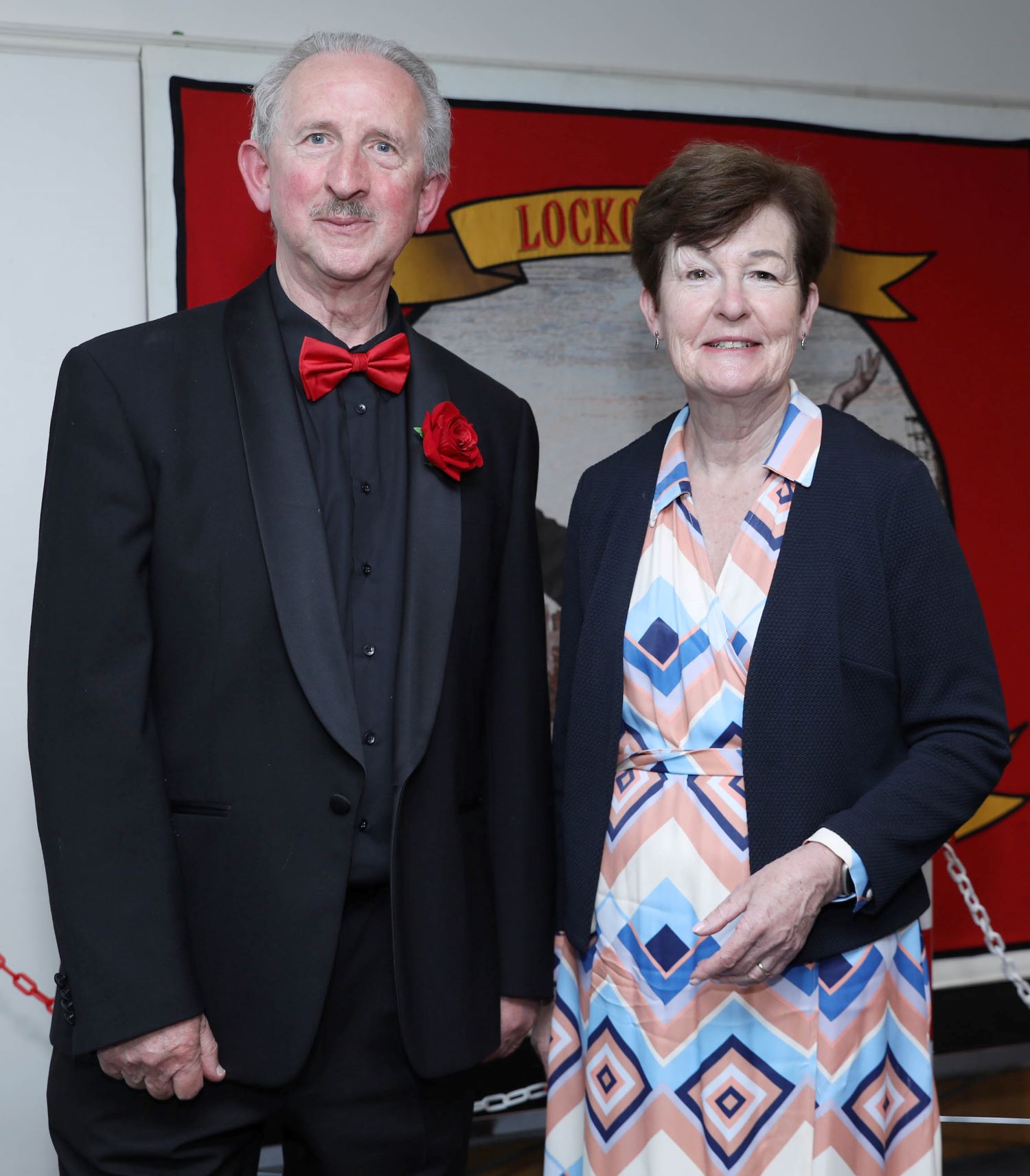
A strong critic of the national broadcaster for neglecting adult education, she was appointed to the RTÉ Authority in 1973. Proceeding to chair the authority (1976–9), she was the first woman ever to chair an Irish semi-state body (she insisted on being referred to as ‘chairman’ as this was the title specified in the Broadcasting Act) and served a third term on the authority from 1979–82.
Deploying her extensive contacts, strong personality and considerable organisational abilities, Sheila effectively pushed the Irish state to pursue just and humane treatment of women and children in public and private life. She sat on a variety of bodies, including the Commission on Adult Education (1981–3), the Health Education Bureau (1975–8), and the Rent Tribunal (1984–8). She served on the visiting committee of St Patrick’s Institution where she endeavoured to combat widespread illiteracy amongst juvenile inmates and provide them with vocational education. She refused to serve a second term, dismayed by the institutional brutality tolerated by the Department of Justice.
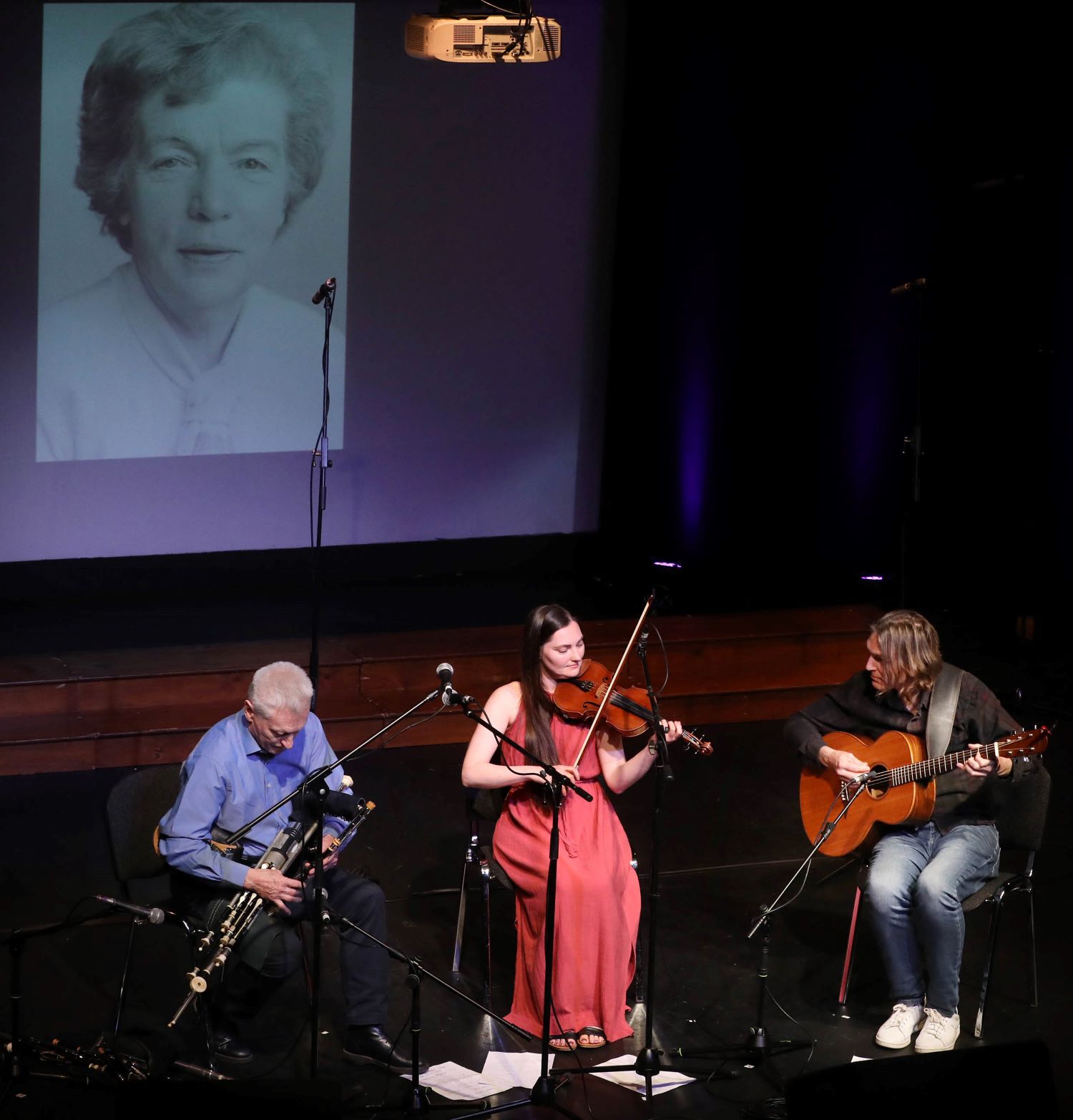
In 1988 Sheila was awarded an honorary fellowship of the College of Industrial Relations, and in 2001 an honorary doctorate by the National University of Ireland. She described herself as an ‘Irish socialist’, and was committed to her Catholic faith. Always immensely proud of her Cork roots, one of her few recreations was watching sport on RTÉ television (supporting Cork teams and sportspeople). She had a remarkable work ethic, and continued her involvement with the People’s College into her 90s.
Sheila lived in Sandymount Avenue, Ballsbridge, Dublin, before spending her final months at the Tara Care Centre, Bray, Co. Wicklow, where she died on 11 May 2012. She was buried in Dean’s Grange cemetery, alongside her husband.
The above biographical note has been derived from a number of sources, most especially Sheila Conroy. Fighting Spirit (1993) by Marianne Heron and the entry by Turlough O’Riordan in the Dictionary of Irish Biography.
Photographer John McElroy https://ppai.ie/photographer/John-McElroy/
